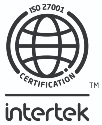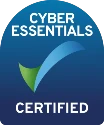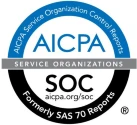Panel Discussion on Realising the Value of No-Code Solutions

At this year’s Insurance Innovators Summit in London, where INSTANDA were proud Gold Sponsors, the focus was firmly on innovation and transformation within the insurance sector.
INSTANDA's Head of Product, Kieran Topp, joined industry experts Andrea Pace from Brit Insurance and Bessem Ayari from ERGO for an insightful panel discussion on the impact of low-code and no-code solutions in the insurance sector. The conversation highlighted the potential no-code holds in transforming traditional workflows and redefining customer experiences.
The Power of No-Code Solutions
Moderator Tony Tarquini kicked off the conversation by asking where these solutions are having the biggest impact. Bessem observed that from a corporate perspective, no-code can support workflows and customer journeys, especially when dealing with legacy systems. He emphasised the role these technologies play in liberating insurers from IT bottlenecks, allowing them to focus on strategic initiatives.
Andrea highlighted the game-changing potential of democratising technology through these solutions. However, he cautioned that "low code doesn’t mean no effort," and stressed the importance of understanding where technology truly delivers strategic value.
Understanding the Difference between Low-Code and No-Code
Providing a vendor perspective, Kieran followed on from Andrea’s point and went further into the differences between low-code and no-code solutions. He explained, "When considering their transformative impact, it's crucial to distinguish between low-code and no-code solutions, as they are fundamentally different. With a low-code solution, the last 10-20% can still pose a bottleneck, leaving certain hurdles to maintaining a competitive edge."
Discussing the role of no-code, Kieran noted, "No-code platforms like INSTANDA eliminate these residual bottlenecks, fostering a culture of innovation within the insurance sector." He continued, "The companies that truly excel are those that embrace innovation wholeheartedly, empowering their teams to think freely and fail fast. Implementing a no-code system that bypasses legacy limitations allows insurers and intermediaries to rapidly create and adapt products at a much lower initial investment, whilst allowing them to tailor offerings mid-flight based on customer outcomes and the value added by a minimum viable product (MVP)."
Following a question from Tony Tarquini on how no-code solutions could change recruitment dynamics, Kieran noted that as insurers and customers consider products through an increasingly preventative lens, different skills will be required, which can be augmented with no-code solutions – by placing business users at the heart of the product creation process. He envisaged a future where professionals and graduates from more diverse backgrounds, such as nutritionists or sports scientists in the case of life & health, are better able to contextualise the role of insurance in solving problems for billions of people across the globe - and thus actively motivated to join rather than simply “fall into” the industry; a view shared by the other panellists.
The Strategic Advantages of Adoption
As the discussion progressed, the focus shifted towards the strategic advantages of adopting no-code solutions. Bessem noted that these technologies enable insurers to be more agile and customer-focused in an increasingly competitive market. By streamlining processes, insurers can reduce time-to-market for new products while tailoring offerings to meet evolving customer needs.
Kieran underscored the importance of transformation at the organisational level. "To harness the full potential of no-code, insurers must embrace a cultural shift towards innovation and experimentation in both hearts and minds," he explained. This mindset promotes an environment where teams continuously iterate and improve upon their approaches, leveraging data insights to enhance customer experiences.
Andrea concluded by pointing out that success with these solutions involves a comprehensive understanding of the technology, strategic alignment with business goals, and a commitment to fostering collaboration across business units. With the right foundation, the potential for innovation he mentioned, “Is game-changing,” transforming how insurers do business and build relationships with customers.
Challenges and Best Practices
The panel also tackled challenges surrounding governance and organisational control. Andrea talked about the merits of creating a Centre of Excellence (CoE) to support citizen developers and maintain standards. Bessem added the need for business unit training to effectively leverage these tools.
Kieran further highlighted the importance of security and regulatory compliance as critical considerations when implementing any low-code or no-code solution. He emphasised the responsibility of insurers to safeguard sensitive customer information, ensuring that any shift in technology does not compromise data integrity. Kieran noted, "Security must be culturally integrated into the development process. Regular audits and the use of robust, secure frameworks can help maintain compliance with industry standards, as can the no-code principles of automation and security by design."
Furthermore, Bessem addressed the challenge of integration with existing legacy systems, which often present hurdles in technology adoption. He recommended a phased approach to integration, allowing insurers to gradually transition while minimising disruptions to ongoing operations.
Collectively, the panellists agreed that embracing no-code solutions requires a forward-thinking mindset, emphasising the value of ongoing education and adaptation. By keeping abreast of technological advancements and nurturing a culture of agility, insurers can position themselves at the forefront of industry innovation, resulting in sustained competitive advantage and – critically – enhanced customer satisfaction.
The Road Ahead
As the discussion concluded, Kieran reiterated that the goal is not about replacing people but augmenting human capabilities, and that the “hearts and minds” change approach is therefore critical. Along with Andrea, he explored the advantages of identifying and experimenting with no-code solutions within individual product lines, geographies or distribution channels and gradually expanding to other areas of the business. This strategic approach can enable business teams to “get to grips” with the full potential of no-code solutions much more quickly, without compromising on governance or security.
We hope you enjoyed the read. If you’re interested in exploring how INSTANDA’s no-code platform could positively impact your business, contact us to speak with one of our experts.





